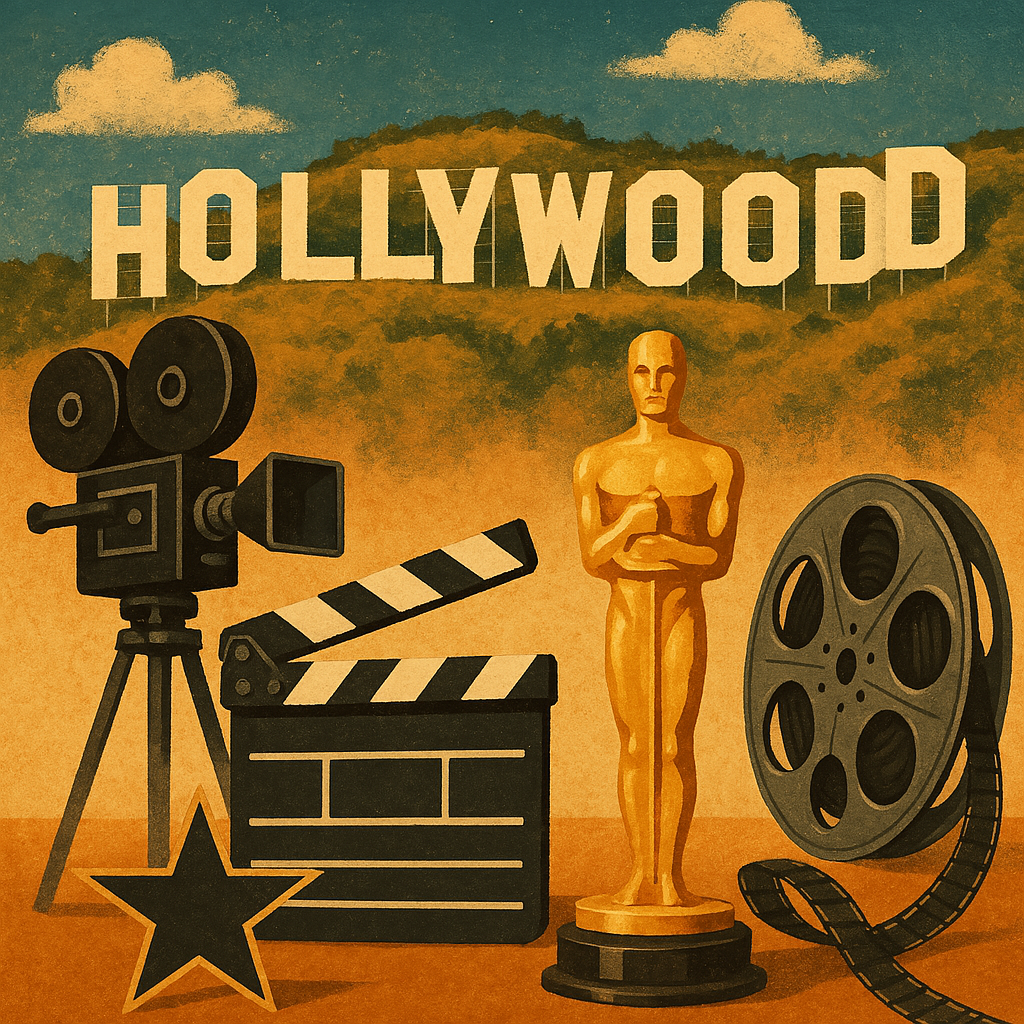
In a parallel world, the entertainment industry is grappling with the seismic aftershocks of President Rexford “Rex” Hammer’s controversial “American Values Film Festival.” Hammer, a populist firebrand who swept into power on a wave of anti-elite sentiment, launched the festival as a direct challenge to what he terms Hollywood’s “woke agenda.” The event, held last week in the heart of Branson, Missouri, has ignited a furious debate about artistic freedom, political influence, and the very definition of “American values.”
The festival showcased a curated selection of films, almost exclusively produced by independent filmmakers and studios with strong ties to the President’s Republican party base. Many of the films explicitly tackled issues deemed central to Hammer’s platform: strict immigration policies, the rejection of what’s labeled “radical gender ideology,” and a strong emphasis on traditional family structures. The narrative arcs were largely predictable, often portraying heroic figures upholding these values against villainous liberal elites and their supposed cultural assaults.
One of the most talked-about films, “The Crimson Tide of Deception,” depicted a fictional scenario where a shadowy cabal of Hollywood producers and academics attempts to undermine the nation’s moral fabric through subversive messaging in children’s cartoons. The film, which garnered both fervent applause and angry walkouts, received a substantial boost from President Hammer himself, who praised it on his social media platform as a “masterful exposé of the deep state’s cultural warfare.”
The festival’s selection process has faced intense scrutiny. Accusations of censorship and blatant political favoritism are rampant. Critics point to the near-total absence of films directed by women, people of color, or LGBTQ+ individuals, arguing that the festival reflects a deliberate attempt to marginalize dissenting voices and impose a narrow, conservative worldview.
“This isn’t a film festival; it’s a political rally disguised as art,” declared renowned film critic Anya Sharma in a scathing op-ed piece for the *Parallel Times*. “It’s a blatant attempt to manipulate public opinion and suppress narratives that challenge the President’s agenda. This isn’t about celebrating American values; it’s about silencing those who don’t conform.”
The controversy extended beyond the festival’s programming. The selection of Branson, a town heavily reliant on tourism, as the host city also sparked debate. Critics argued that the decision prioritized political gain over artistic considerations, turning a cultural event into a tool for boosting the President’s approval ratings in a key demographic region.
The economic implications are also significant. While the festival generated considerable revenue for Branson’s local businesses, many Hollywood studios and independent filmmakers have publicly denounced the event, vowing to boycott future collaborations with any companies or individuals involved. This boycott could have long-term consequences, impacting future film productions and potentially shifting the balance of power within the industry.
The festival’s legacy is already being debated by academics and cultural commentators. Many fear that the event could embolden similar politically-motivated initiatives, leading to further fragmentation and polarization within the entertainment industry and broader society.
Some actors, directors, and producers have expressed their support for the festival, praising it as a much-needed corrective to what they perceive as the excessive influence of left-leaning ideology in Hollywood. However, these voices remain a minority, often facing intense online backlash and accusations of complicity in a political agenda.
The backlash, however, has also inadvertently sparked a renewed focus on independent filmmaking and alternative distribution channels. Several streaming platforms and online distributors have announced initiatives to support independent filmmakers excluded from mainstream Hollywood and the President’s festival. This has led to discussions about democratizing access to filmmaking resources and creating more equitable opportunities for marginalized voices.
Beyond the immediate controversy, the “American Values Film Festival” has exposed deep-seated divisions within American society. It has highlighted the growing influence of political ideology on cultural production and the challenges of maintaining artistic integrity in an increasingly polarized environment. The long-term impact on the entertainment industry remains uncertain, but one thing is clear: the festival has irrevocably altered the landscape of parallel world Hollywood.
The legal battles are far from over. Several lawsuits have been filed challenging the festival’s practices, alleging violations of anti-discrimination laws and infringements on freedom of speech. These lawsuits will likely set important precedents, shaping the future relationship between government, politics, and the art of filmmaking in this parallel world.
Meanwhile, President Hammer, unfazed by the criticism, has already announced plans for a sequel event, promising an even bigger and bolder celebration of “true American values.” This announcement has further fueled speculation about the extent to which the President intends to wield his power to shape the cultural landscape of this parallel world and the potential consequences for creative freedom and artistic expression. The battle over the soul of Hollywood, in this parallel universe, continues.
The debate extends beyond the film industry itself, touching upon wider concerns about freedom of speech, censorship, and the role of government in cultural production. Many fear that the President’s actions represent a worrying trend towards government control over artistic expression, potentially silencing dissenting voices and hindering creativity. Others, however, see it as a necessary correction to what they perceive as an overly liberal bias within Hollywood. This deep cultural divide reflects a broader societal schism that runs through the political, social, and economic fabric of this parallel world. The future impact of the President’s actions remains to be seen, but the reverberations of the “American Values Film Festival” will undoubtedly be felt for years to come.
The parallel world’s entertainment industry is facing a period of unprecedented uncertainty. The long-term consequences of the “American Values Film Festival” remain unclear, but the event has undeniably altered the relationship between politics, art, and commerce. The festival has brought into sharp focus the ongoing battle over narratives and values within this parallel America, a battle that is far from resolved. The coming months and years will reveal whether this moment will serve as a turning point, leading to greater pluralism and inclusivity, or further entrenchment of existing divides. The future of Hollywood, in this parallel universe, hangs in the balance.